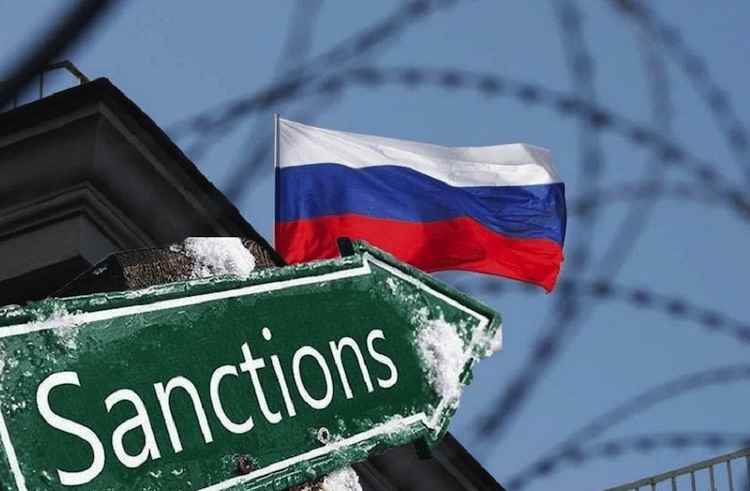
Since Russia’s recognition of the non-government-controlled areas of Ukraine’s Donetsk and Luhansk regions on 21 February 2022, and subsequent invasion of Ukraine on 24 February 2022, a number of countries, including the United States, Canada, and the European Union, have imposed a slew of new sanctions on Russia. More than 1,000 international companies have either suspended trading in Russia, or withdrawn altogether – including McDonalds, Coca-Cola, Starbucks, and others. Russia has responded by prohibiting the export of more than 200 products until the end of 2022, including telecommunications, medical, automotive, agricultural, electrical equipment, and forestry. Furthermore, Kremlin is preventing interest payments to international investors who hold government bonds and prohibiting Russian companies from paying foreign shareholders. It has halted the sale of Russian equities and bonds worth billions of dollars held by foreign investors.
Economic sanctions are generally expected to deteriorate the situation of the state subject to them to the point where the government is obliged to make decisions that the country or group of countries imposing the sanctions requests. At the same time, the nations that have decided on sanctions would not be affected by them. However, in reality, the situation with Russia is far more nuanced. The Kremlin’s response to the sanctions-induced pressure was more effective than predicted by the U.S and EU for a number of reasons. First, it is critical to understand that although Russian economy is weak, it is not sufficiently weak to surmount Putin’s harsh political stance and strong control over most elements of Russian society, particularly Russian politics. The economic downturn has not yet reached the point of overcoming the fear instilled in those opposed to the war. Generally, if the state takes aggressive action despite the threat of sanctions, that suggests that the cost of sanctions for the country was already included into the political elite’s calculations. For instance, before the invasion of Ukraine started, the Bank of Russia had already taken significant measures to diversify its reserves, including de-dollarization and transfers of assets from vulnerable jurisdictions. Because of these actions, as well as people’s fear to oppose the war, the impact of sanctions was far less successful than the international community had projected.
The Western strategy to dealing with Russia is predicated on the premise that persistent economic and political pressure would eventually compel President Putin’s administration to make concessions, if not collapse it. That notion is not entirely correct. The belief in the effectiveness of Western sanctions is based on the fact that a sharp deterioration in the economic situation will turn the Russian public, in particular, the financial and political elite, against the Kremlin. According to the West, Putin would not be able to survive a wave of opposition from the wealthier urban sectors of the population, as well as the outrage of the country’s growing middle class. Western leaders failed to see that such an approach was not likely to destabilize the Putin regime unless sanctions targeted more human necessities. Furthermore, the sanctions actually have served to unite many Russians behind Putin. That is the problem of the Western leaders; they fail to take into account the Russian mentality. Because Russian people have never known freedom, their initial instinct to oppression is not to resist and protest. In Russia, democracy has never existed, and people are accustomed to having a dictator in power; they simply do not know how to make decisions. That consideration is critical to the analysis that precedes the imposition of sanctions because without understanding the target, it is nearly impossible to successfully accomplish the objective.
It is equally essential to analyze the effect of sanctions on the international community. Russia is the EU’s top supplier of energy. Russia accounts for over 40% of the EU’s natural gas imports and approximately one-third of its crude oil imports. Gas reserves are lower than in the past, and prices have risen in recent months, giving Russia more leverage. Factually, as of now, Europe has no alternative to Russian gas. Moreover, Russia is a major commodity exporter and is on the European Commission’s list of major raw material suppliers. If European leaders choose to impose harder sanctions on Russia, Europe might face an energy supply crisis. From technology providers and banks to products exporters and manufacturing reliant on raw materials, disrupted commercial relations would heighten inflationary pressures and reduce activity for a wide spectrum of European enterprises. The U.S has been pressuring European partners to inflict greater pain on Russia while also ensuring that the coalition against President Vladimir Putin does not disintegrate. To proceed with heavier sanctions, U.S authorities will need to reassure European nations that energy markets and supply can be maintained in order to prevent catastrophic economic hardship. One of the weaknesses of current sanctions is the lack of planning and predictive analysis. Even with American reassurance, Europe needs to calculate the impact of future sanctions and Russia’s probable response in order for the sanctions not to undermine economic stability of Europe.
References
BBC. (2022, May 25). What sanctions are being imposed on Russia over Ukraine invasion? BBC News. Retrieved May 29, 2022, from https://www.bbc.com/news/world-europe-60125659
Brahma Chellaney, O. C. (2022, May 2). Why sanctions against Russia may not work. The Hill. Retrieved May 29, 2022, from https://thehill.com/opinion/international/3473500-why-sanctions-against-russia-may-not-work/
Constable, S. (2022, February 23). Why sanctions on Russia won’t work. Time. Retrieved May 29, 2022, from https://time.com/6150607/why-sanctions-on-russia-wont-work/
By The European Institute for International Law and International Relations.















